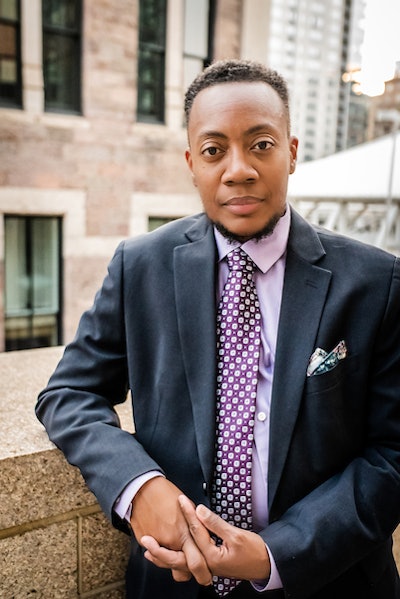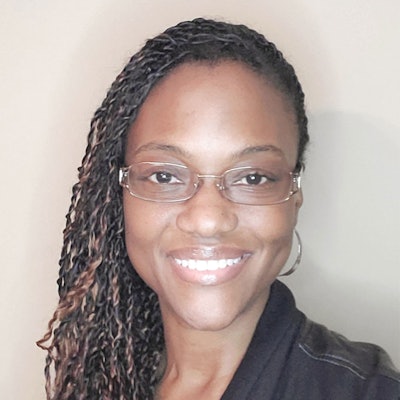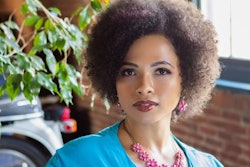As institutions wrap up their fall semesters, many faculty, staff, and students look forward to a chance to go home to familiar stomping grounds and family traditions. But for students who identify as LGBTQ+, particularly those who identify as non-binary, going home for winter break can paint a more complicated picture.
Holiday stress impacts almost all students, according to a new survey of over 1,200 students from TimelyMD, a virtual health and wellbeing company that partners with almost 250 higher education institutions. Many students expressed concerns about upcoming family-time, travel, and the financial burden of the holiday.
 Dr. D-L Stewart, professor and chair of the higher education department at the University of Denver.
Dr. D-L Stewart, professor and chair of the higher education department at the University of Denver.
These feelings aren’t just experienced by first-year freshman but by all students throughout their undergraduate and even graduate careers, said Dr. D-L Stewart, professor and chair of the higher education department at the University of Denver.
No matter where a student is in their educational journey, when their institution closes for the holidays, some will lose access to the mental health supports and resources they could previously count on. Companies like TimelyMD want to fill the gap that can be created when institutions (and their counseling centers) close for the winter break, said Seli Fakorzi, director of mental health operations at TimelyMD.
“We’ve talked about how this mental health crisis has blown up quickly—mental health was a crisis, and COVID-19 was the gasoline,” said Fakorzi. “Campus counseling center directors just don’t have the bandwidth to do it all.”
TimelyMD helps students connect with counseling services no matter where they go home for the holidays. Help is available day and night every day of the year. Fakorzi shared the story of one student whose domestic situation became complicated on Thanksgiving day. TimelyMD’s counselors and support system were able to offer that student help, regardless of the holiday.
“We definitely don’t go a on a winter break from mental health,” said Fakorzi, adding that she spoke with two counseling center directors last week who reconfirmed TimelyMD’s 24/7 service and also shared a list of students who could need extra support over the holiday break.
“We offer a partnership where campus counseling centers can depend on us to be around when they’re not,” said Fakorzi. “That’s phenomenally impactful for students, being able to say I have this access where and when I need it—even if that’s in a small guest room at your family’s house. We want to support them in getting back to campus, to realize their educational goals, so the holidays don’t take them out.”
 Seli Fakorzi, director of mental health operations at TimelyMD.
Seli Fakorzi, director of mental health operations at TimelyMD.
“Now we take that situation, and then we layer on top of that being a queer or trans student,” said Stewart. “The leaving of family on campus is experienced more deeply for LGBTQ+ students, who perhaps don’t have [safe, supportive] spaces at the place where they live.”
Students, said Stewart, may no longer feel their old home is home and not know what to do with that feeling.
“Their relationship with the place, the people, has significantly shifted,” said Stewart. “How do they relate to them now, what are their families expecting, and how do they show up in this space?”
The ability to connect and support students virtually or on the phone has been one of the few good things to come from the pandemic, said Stewart. Institutions, he added, should be pushing these various forms of connection and resources out to all their students aggressively, but particularly to LGBTQ+ students in recognition that this time of year can be particularly fraught.
“Institutions more broadly need to support these [counseling and LGBTQ+] centers with greater funding, fiscal and human resources to expand their programming,” said Stewart. “The staff in these centers are often just one full-time person, or maybe two people. Two full-time staff can only do so much.”
Liann Herder can be reached at [email protected].






















